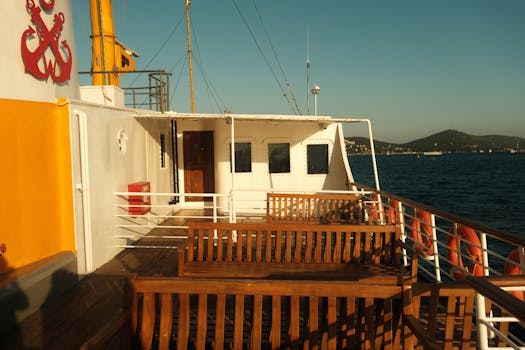You could do a college course like an introduction to cabin crew, or study a cabin crew module as part of a broader travel and tourism course.
Entry requirements
Entry requirements for these courses vary.
A cruise ship crew member works aboard a cruise liner, helping to ensure that passengers have a safe and enjoyable holiday experience. Crew roles can vary greatly, including hospitality, entertainment, housekeeping, technical operations, and customer service. Duties may involve serving food and drinks, cleaning cabins, organising activities, or maintaining facilities. Crew members usually live on the ship for the duration of their contract and may travel to many different locations around the world. The job requires flexibility, good teamwork skills, and the ability to handle long periods away from home. It can be a rewarding way to see the world and gain valuable work experience in the hospitality and tourism industry.

The average salary for a cruise ship crew member working from the UK ranges from £15,000 to £30,000 per year, depending on the specific role and experience.
It is estimated that over 10,000 UK nationals are employed as crew members on cruise ships annually.
Crew members often work long hours, typically 8 to 12 hours per day, with contracts usually lasting from 4 to 9 months.

Organises and leads entertainment activities and events for passengers aboard a cruise ship, such as quizzes, games, and performances.

Works in housekeeping or food service, ensuring guest cabins and public areas are clean, or serving meals in restaurants and buffets.
Plans and supervises games, workshops, and activities for children and teenagers travelling on the cruise ship.
Work in jobs where you interact with customers, such as in hospitality, retail, or food service.
Experience in customer service is highly valued on cruise ships, as you will be interacting with passengers from around the world. Part-time work in hotels, restaurants, or shops can help you build these essential skills and demonstrate your ability to provide excellent service.
Study or improve your skills in widely spoken languages such as Spanish, French, or German.
Being able to speak additional languages can set you apart from other applicants. Many cruise lines have international guests, so even a basic ability in a second language can be a significant advantage and increase your chances of being hired.
Most cruise lines require crew members to be at least 18 or 21 years old and physically fit.
Check the specific age, health, and sometimes height requirements for the cruise line you are interested in. You will often need to pass a medical examination to ensure you are fit for work at sea.
Submit applications directly to cruise lines or through agencies that specialise in cruise ship recruitment.
Prepare a CV tailored to hospitality or service roles. Cruise lines such as Carnival, Royal Caribbean, and P&O Cruises often list vacancies on their websites. Recruitment agencies can also help match your skills to available positions on board.
Complete STCW (Standards of Training, Certification and Watchkeeping for Seafarers) safety training before or upon joining the ship.
This training covers personal safety, first aid, firefighting, and survival techniques at sea. It is required by international maritime law for all crew members and is usually provided by the cruise line or an approved training centre.
Join your assigned ship and begin your role, learning daily routines and adapting to life at sea.
You will live and work on the ship for several months at a time, sharing cabins and working shifts. Embrace the unique lifestyle, make friends from all over the world, and gain valuable work experience in hospitality, entertainment, or technical roles.
Explore relevant apprenticeships that can help you kickstart your career in Cruise Ship Crew Member. Apprenticeships offer hands-on experience and training while earning a wage.
This page showcases various career options and the pathways to reach them. Each career listed here shares transferable skills and knowledge, making it easier for individuals to transition between them.
Your current career is highlighted to help you see how it fits into the broader landscape of potential career choices. By clicking on any career, you can learn more about it, including the training and education required to pursue it.
Remember, progressing in your career often involves further learning and training. This page provides insights into future career options as well as those that can lead up to your current one.
These career progression decisions are informed by comparing the skills and knowledge needed for different occupations, along with data on how people move between them. Explore the possibilities and discover the exciting journey ahead in your career!
Both roles involve providing customer service to passengers onboard a vessel, ensuring their safety and comfort. They require travelling, teamwork, and flexibility, making them closely related in terms of qualifications and responsibilities.
You can get into this job through:
You could do a college course like an introduction to cabin crew, or study a cabin crew module as part of a broader travel and tourism course.
Entry requirements for these courses vary.
You could apply to do a Cabin Crew Level 3 Advanced Apprenticeship.
This will take around 12 months to complete. You'll do on-the-job training and spend time with a college or training provider.
You'll usually need:
You could apply directly to airlines for a cabin crew job. Airlines set their own entry requirements, which can vary.
You'll be expected to have a good standard of spoken and written English. You'll also need to show that you have great customer service skills, so experience of working directly with the public is useful.
Some airlines and private training providers run short cabin crew preparation courses, which may help your chances of getting a job, though these are not essential.
Certain airlines have online career quizzes you can do to test whether working as air cabin crew is for you, before you apply.
Being able to speak a second language may give you an advantage for some jobs.
Explore other careers or use our AI to discover personalised paths based on your interests.
Address
Developing Experts Limited
Exchange Street Buildings
35-37 Exchange Street
Norwich
NR2 1DP
UK
Phone
01603 273515
Email
[email protected]
Copyright 2025 Developing Experts, All rights reserved.
Unlock expert-designed lessons, resources, and assessments tailored for educators. No credit card required.
Claim Your Free Trial →